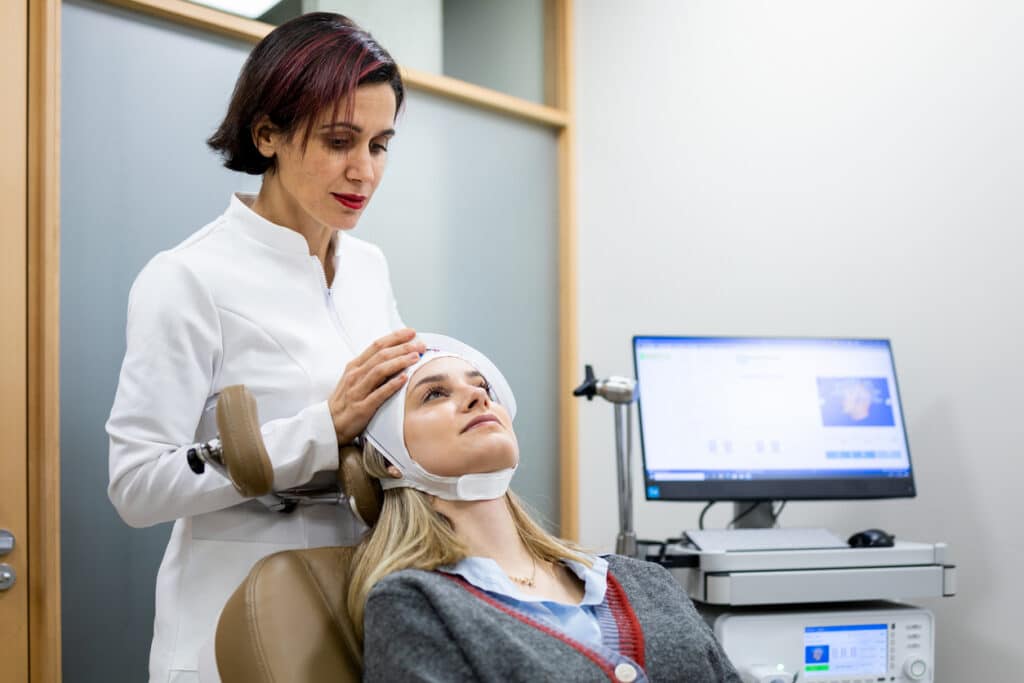By Anna McKenzie
In the wake of two suicides on each campus in fall 2021, two universities (The University of North Carolina at Chapel Hill and Saint Louis University) cancelled classes to give students a mental health day while they investigated the incidents. These tragedies raised an alarm: Are college suicide rates increasing? Is this a sign that the mental health crisis among young adults is growing?
The COVID-19 pandemic has heightened anxiety, interrupted academic schedules, and derailed social activity among college students, especially incoming freshmen. While concern is warranted, there are ways that college students, their loved ones, university staff, and mental health professionals can help stem the tide of suicidal ideation.
The spotlight on college mental health and a greater awareness of the pressures students face can pave the way for coping skills training and increased access to therapeutic services in the future.
In fact, the spotlight on college mental health and a greater awareness of the pressures students face can pave the way for coping skills training and increased access to therapeutic services in the future.
College Mental Health Statistics
Many college students would say that their mental health state could use improvement. A survey from The JED Foundation found that eight out of 10 respondents were dealing with anxiety. More than 60% reported dealing with depression, isolation and loneliness, and trouble concentrating. Significantly, one in five reported having suicidal thoughts in the past 30 days.

In 2019, research from the Centers for Disease Control and Prevention (CDC) indicated that suicide is the second leading cause of death among individuals ages 10 to 34. That year, there were 2.5 times more suicides than homicides for this age group, suggesting that young adults are far more dangerous to themselves than would-be murderers. Nationally, college suicide rates hover at about 1,100 every year, according to data from StateUniversity.com
What’s causing this? A survey of incoming freshmen shared by Inside Higher Ed found that more than half of respondents were experiencing a “substantial increase in mental and emotional exhaustion.” Most expected the intensity of their schoolwork to be an added strain, and about one in three were encountering depression and loneliness. Moving to a new place, having to make new friends, adjust to the workload, and acclimate to a different environment can be a rough adjustment for many freshmen.
The pandemic exacerbated these college mental health challenges by keeping students out of physical classrooms and away from social activities for an indeterminate period of time. The uncertainty, fear of getting sick (and of getting loved ones sick), and the inability to adjust to college normally caused a greater mental health burden for many students, not just freshmen. The JED Foundation study also reported that 56% of respondents were worried about their own ability to handle the mental health challenges they were facing.
Improving Mental Health in College Students
So how can we improve mental health in college students? Increased access to telehealth services may be a positive first step. More than 70% of students in the JED survey said they would take advantage of these services if offered.
Greater mental health awareness and training would give undergrads a better chance to handle their distress in real time.
Second, greater mental health awareness and training would give undergrads a better chance to handle their distress in real time. If they know what to do and how to do it, they may feel more comfortable when challenges arise. They may also focus on becoming more intentionally connected with other students, counselors, loved ones, and staff.
Checking in with supportive people can improve a person’s outlook, and it can also provide an opportunity to be of service to them. When we recognize we are not the only ones who are dealing with anxiety, depression, and loneliness, we can turn the focus away from ourselves and reach out to others who may be hurting.
How to Prevent a Mental Health Crisis
If you’re a college student, the following can help you when you’re struggling with negative thinking, hopelessness, or fear:
- Physical activity
Movement — whether you’re doing yoga, playing basketball, or taking a nature walk — can provide endorphins and a chance to change your perspective.
- Meditation and mindfulness
Getting quiet for a little while, then paying attention to what you’re thinking and feeling without judgment, can help you accept your emotions and then dismiss them.
- Be kind to yourself
We are often far more critical of ourselves than we are of others. Treat yourself like you would treat a friend: exercise compassion, and care for your own well-being.
- Check in (and check on others)
As mentioned before, checking in with supportive friends, family, or a counselor can provide encouragement. Checking on others can also boost your spirit as you may be of help to them. None of us are alone when it comes to mental health struggles.
If you’re experiencing extremes in your thinking and emotions, constantly battling the desire to escape your life, or use substances to cope, it’s time to talk to someone. There’s no shame in saying “yes” to feeling better. You can heal, and there are plenty of people waiting to offer their assistance to you.
Mental Health Treatment for College Students at The Meadows
At The Meadows, we offer research-backed solutions for college students dealing with mental health conditions. Our experts use both time-tested and innovative techniques to help young adults overcome the mental and emotional issues impeding their livelihood. Our desire is to help you thrive in the long term. To find out more about how we can help, contact our team today. We would love to speak with you!



